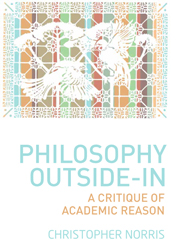Book contents
- Frontmatter
- Contents
- Dedication
- Introduction
- 1 How Not to Defeat Scepticism: Why Anti-realism Won't Do the Trick
- 2 Great Philosophy: Discovery, Invention and the Uses of Error
- 3 Under Which King, Bezonian? Experimental Philosophy versus Thought Experiment
- 4 Outside the Box: On the ‘Extended Mind’ Hypothesis
- 5 Inaesthetics and Transitory Ontology: The Case of Political Song
- 6 Speculative Realism: An Interim Report
- 7 Provoking Philosophy: Shakespeare, Johnson, Wittgenstein, Derrida
- Index
7 - Provoking Philosophy: Shakespeare, Johnson, Wittgenstein, Derrida
Published online by Cambridge University Press: 05 March 2014
- Frontmatter
- Contents
- Dedication
- Introduction
- 1 How Not to Defeat Scepticism: Why Anti-realism Won't Do the Trick
- 2 Great Philosophy: Discovery, Invention and the Uses of Error
- 3 Under Which King, Bezonian? Experimental Philosophy versus Thought Experiment
- 4 Outside the Box: On the ‘Extended Mind’ Hypothesis
- 5 Inaesthetics and Transitory Ontology: The Case of Political Song
- 6 Speculative Realism: An Interim Report
- 7 Provoking Philosophy: Shakespeare, Johnson, Wittgenstein, Derrida
- Index
Summary
I
When Keats famously remarked of Shakespeare that he possessed the attribute of ‘negative capability’ – as opposed to the echt- Wordsworthian ‘egotistical sublime’ – he very clearly meant it as a compliment (to Shakespeare, not Wordsworth) and also perhaps, in mock-modest style, as a piece of implicit self-description. There has been a good deal of critical debate as to just what he might have meant by that cryptic phrase and I shall draw on it here by way of suggesting that the description applies just as well, albeit in a somewhat different way, to certain prominent features of Jacques Derrida's writing. Another way of approaching this topic is the via negativa of asking what it might be that Shakespeare and Derrida have in common and that some philosophers find unsettling, offensive or downright rebarbative. In fact Keats's reasons for admiring Shakespeare's peculiarly ‘negative’ genius each have a counterpart in one or other of the arguments advanced (whether by philosophers or a minority of literary critics) for thinking Shakespeare to be grossly overrated. Moreover, they each find a near equivalent in one or other of the reasons often put forward by those in the mainly analytic camp for treating Derrida as a latter-day sophist – or mere charlatan – whose admirers (wouldn't you know?) hail mostly from departments of literature or, just as bad, from departments of philosophy bitten by the dread ‘continental’ bug.
- Type
- Chapter
- Information
- Philosophy Outside-InA Critique of Academic Reason, pp. 205 - 249Publisher: Edinburgh University PressPrint publication year: 2013

